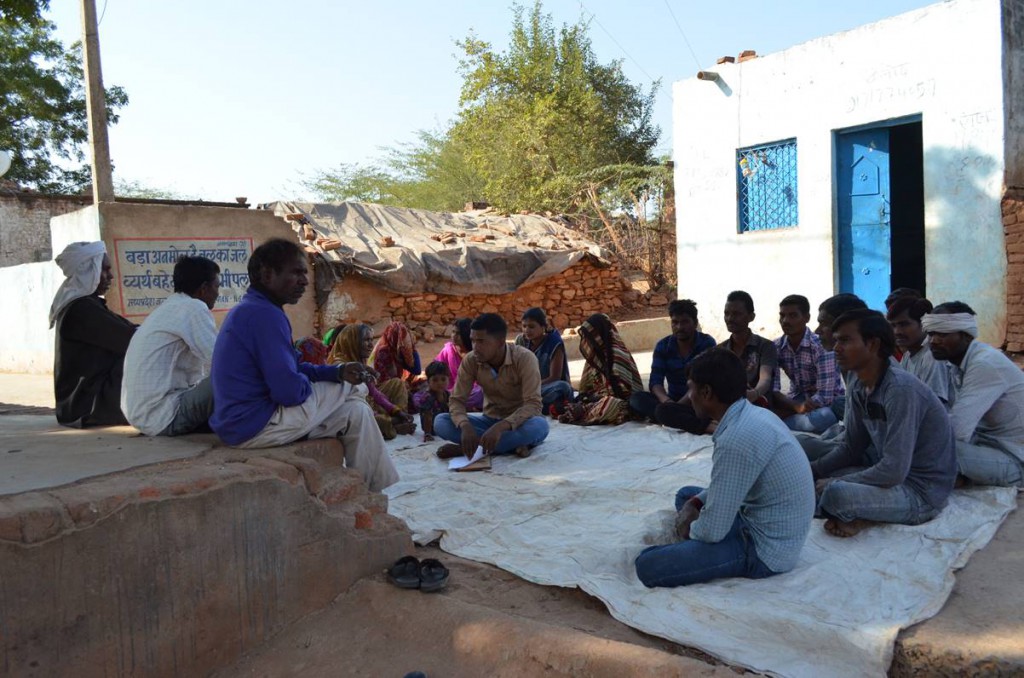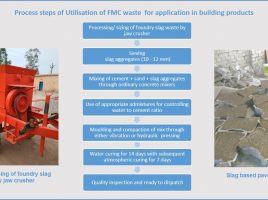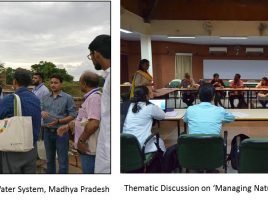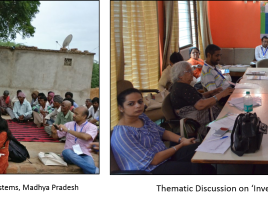Communication for Co-creating Trust and Accountability
If we were to run a google search for images or icons on communication, we are likely to notice in our haul, that a majority of images will depict a unidirectional transmission of a message, most commonly through a profusion of speech bubbles or blaring loudspeakers. Few images may allude to two-way communication, and even fewer to the aspects of listening and understanding that are key for effective communication.
As actors in the development sector, we sometimes forget to listen to those whose lives we are committed to improving. We tend to underestimate the role of active listening in the design of interventions so that these can be responsive to the needs of the community. The need for spaces and mechanisms for active listening through two-way communication however, is important not only in the design phase but throughout the lifetime of any development project.

Jan-Sunwais are beneficial in generating a more informed and well-balanced opinion within the community.
In a watershed development project supported by The Coca-Cola Foundation that was implemented in Shivpuri district of Madhya Pradesh, we concluded the implementation phase with a community interaction that we termed as a jan-sunwai. The term means public hearing and usually refers to a mechanism by which people that may have been affected by a particular action or decision have the opportunity to interact directly with government officials and the project proponents and ask questions, make submissions or register objections.
The approach of the jan-sunwai we organised was somewhat different, as our primary purpose was to present to the community in a transparent and accountable manner, comprehensive information on all the interventions that had been carried out in the project villages. This would be an occasion for community validation of the project interventions and formal handover of the assets built under the project to the community for their future maintenance and management.
As preparation for the jan-sunwai, information was collated on all assets created under the project in the form of watershed structures such as check-dams, farm-ponds, farm-bunds etc. List of households that were beneficiaries of each of these structures were generated. Not only the infrastructural interventions, but also the field demonstrations and training programmes were enlisted along with the list of people that had participated in these activities. Alongside this information were compiled details of financial investment made on each of these structures including the cost of materials and labour as illustrated in copies of original financial transactions. Additionally, all this information was also translated into formats that could be easily accessed and understood by the community in the local language.
On the day of the jan-sunwai, as the members of the community assembled, the proceedings were initiated with introductory remarks by the independent facilitator on the purpose of the event, dwelling on the principles of democratic participatory governance and the rights and responsibilities of communities to participate actively in development initiatives that are designed for them. This was followed by a presentation on the various activities and infrastructural developments undertaken within the project interjected with open discussions on the outcomes and impacts as perceived by the beneficiaries themselves.
It was observed that the jan-sunwai helped the community to generate amongst the community, common ground and shared understanding on the benefits of specific project interventions, say for instance how farm-bunding helps ameliorate water scarcity stresses during drought conditions. In certain cases, it was revealed that different people had different or even contradictory opinions on outcomes of some activities. It was very beneficial to explore and discuss these differences of opinion further and thereby generate a more informed and well-balanced opinion that the community could agree upon.
The emergence of shared understanding of benefits and risks augurs well not only for the continued maintenance of the assets that were created but also serves to mobilise the community for investing additional resources in replicating such interventions, including through their influence on decision-making on the utilisation of local development funds.
The importance of listening closely, with an open mind, to project stakeholders cannot be over-emphasised. It serves to create an atmosphere of mutual trust and accountability in which the process of development can learn from its own experiences and become more effective.
Mayukh Hajra
mhajra@devalt.org
The views expressed in the article are those of the author’s and not necessarily those of Development Alternatives.






Leave a Reply